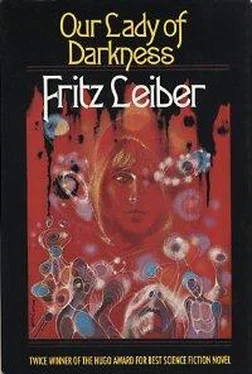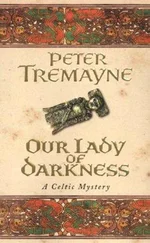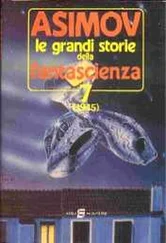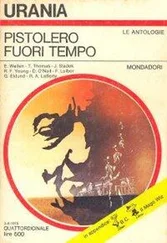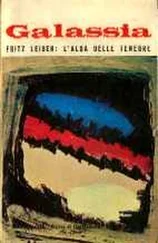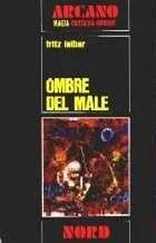Saul said, “Your Taffy story reminds me of my Mr. Edwards. He gets the idea that two enemies in a parked car across the street from the hospital have got a pain-ray projector trained on him. We wheel him over there so he can see for himself there ain’t no one in any of the cars. He’s very much relieved and keeps thanking us, but when we get him back to his room, he lets out a sudden squeal of agony. Seems his enemies have taken advantage of his absence to plant a pain-ray projector somewhere in the walls.”
“Oh, Saul,” Cal said in mildly scathing tones, “we’re not all of us your hospital people—at least yet. Franz, I wonder if those two innocent-seeming little girls may not have been involved. You said they were running around and dancing, like your pale brown thing. I’m sure that if there’s such a thing as psychic energy, little girls have lots of it.”
“I’d say you have a good artistic imagination. That angle hadn’t even occurred to me,” Franz told her, acutely aware that he was beginning to disparage the whole incident, but unable to help himself. “Saul, I may very well have been projecting—at least in part—but if so, what? Also, the figure was nondescript, remember, and wasn’t doing anything objectively sinister.”
Saul said, “Look, I wasn’t suggesting any parallel. That’s your idea, and Cal’s. I was just reminded of another weird incident.”
Gun guffawed. “Saul doesn’t think we’re all completely crazy. Just fringe-psychotic.”
There was a knock and then the door opened as Dorotea Luque let herself in. She sniffed and looked at Saul. She was a slender version of her brother, with a beautiful Inca profile and jet-black hair. She had a small parcel-post package of books for Franz.
“I wondered you’d be down here, and then I heard you talk,” she explained. “Did you find the e-scary things to write about with your… how you say… ?” She made binoculars of her hands and held them to her eyes, and then looked questioningly around when they all laughed.
While Cal got her a glass of wine, Franz hastened to explain. To his surprise, she took the figure in the window very seriously.
“But are you e-sure you weren’t ripped off?” she demanded anxiously. “We’ve had an e-stealer on the second floor, I think.”
“My portable TV and tape recorder were there,” he told her. “A thief would take those first.”
“But how about your marrowbone?” Saul put in. “Taffy get that?”
“And did you close your transom and double-lock your door?” Dorotea persisted, illustrating with a vigorous twist of her wrist. “Is double-lock now?”
“I always double-lock it,” Franz assured her. “I used to think it was only in detective stories they slipped locks with a plastic card. But then I found I could slip my own with a photograph. The transom, no. I like it open for ventilation.”
“Should always close the transom, too, when you go out,” she pronounced. “All of you, you hear me? Is thin people can get through transoms, you better believe. Well, I am glad you weren’t ripped off. Gracias ,” she added, nodding to Cal as she sipped her wine.
Cal smiled and said to Saul and Gun, “Why shouldn’t a modern city have its special ghosts, like castles and graveyards and big old manor houses once had?”
Saul said, “My Mrs. Willis thinks the skyscrapers are out to get her. At night they make themselves still skinnier, she says, and come sneaking down the streets after her.”
Gun said, “I once heard lightning whistle over Chicago. There was a thunderstorm over the Loop, and I was on the South Side at the university, right near the site of the first atomic pile. There’d be a flash on the northern horizon and then, seven seconds later, not thunder, but this high-pitched moaning scream. I had the idea that all the elevated tracks were audio-resonating a radio component of the flash.”
Cal said eagerly, “Why mightn’t the sheer mass of all that steel—? Franz, tell them about the book.”
He repeated what he’d told her this morning about Megapolisomancy and a little besides.
Gun broke in. “And he says our modern cities are our Egyptian pyramids? That’s beautiful. Just imagine how, when we’ve all been killed off by pollution (nuclear, chemical, smothered in unbiodegradable plastic, red tides of dying microlife, the nasty climax of our climax culture), an archaeological expedition arrives by spaceship from another solar system and starts to explore us like a bunch of goddamn Egyptologists! They’d use roving robot probes to spy through our utterly empty cities, which would be too dangerously radioactive for anything else, as dead and deadly as our poisoned seas. What would they make of World Trade Center in New York City and the Empire State Building? Or the Sears Building in Chicago? Or even the Transamerica Pyramid here? Or that space-launch assembly building at Canaveral that’s so big you can fly light planes around inside? They’d probably decide they were all built for religious and occult purposes, like Stonehenge. They’d never imagine people lived and worked there. No question, our cities will be the eeriest ruins ever. Franz, this de Castries had a sound idea—the sheer amount of stuff there is in cities. That’s heavy, heavy.”
Saul put in, “Mrs. Willis says the skyscrapers get very heavy at night when they—excuse me—screw her.”
Dorotea Luque’s eyes grew large, then she exploded in giggles. “Oh, that’s naughty,” she reproved him merrily, wagging a finger.
Saul’s eyes got a faraway look like a mad poet’s, and he embroidered his remark with, “Can’t you imagine their tall gray skinny forms sneaking sideways down the streets, one flying buttress erected for a stony phallus?” and there was more sputtery laughter from Mrs. Luque. Gun got her more wine and himself another bottle of ale.
Cal said, “Franz, I’ve been thinking on and off all day, in the corner of my mind that wasn’t Brandenburging, about that ‘607 Rhodes’ that drew you to move here. Was it a definite place? And if so, where?”
“607 Rhodes—what’s that all about?” Saul asked.
Franz explained again about the rice-paper journal and the violet-ink person who might have been Clark Ashton Smith and his possible interviews with de Castries. Then he said, “The 607 can’t be a street address—like 811 Geary here, say. There’s no such street as Rhodes in ’Frisco. I’ve checked. The nearest to it is a Rhode Island Street, but that’s way over in the Potrero, and it’s clear from the entries that the 607 place is here downtown, within easy walking distance of Union Square. And once the journal-keeper describes looking out the window at Corona Heights and Mount Sutro—of course, there wasn’t any TV tower then—”
“Hell, in 1928 there weren’t even the Bay and Golden Gate Bridges,” Gun put in.
“—and at Twin Peaks,” Franz went on. “And then he says that Thibaut always referred to Twin Peaks as Cleopatra’s Breasts.”
“I wonder if skyscrapers ever have breasts,” Saul said. “I must ask Mrs. Willis about that.”
Dorotea bugged her eyes again, indicated her bosom, said, “Oh, no!” and once more burst into laughter.
Cal said, “Maybe Rhodes is the name of a building or hotel. You know, the Rhodes Building.”
“Not unless the name’s been changed since 1928,” Franz told her. “There’s nothing like that now that I’ve heard of. The name Rhodes strike a bell with any of you?”
It didn’t.
Gun speculated, “I wonder if this building ever had a name, the poor old raddled dear.”
“You know,” Cal said, “I’d like to know that too.”
Dorotea shook her head. “Is just 811 Geary. Was once hotel maybe—you know, night clerk and maids. But I don’t know.”
Читать дальше
